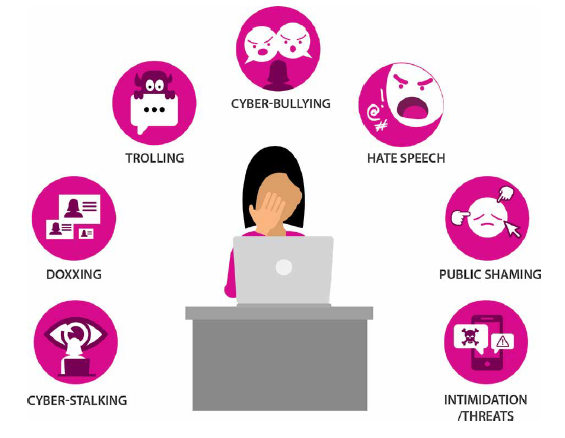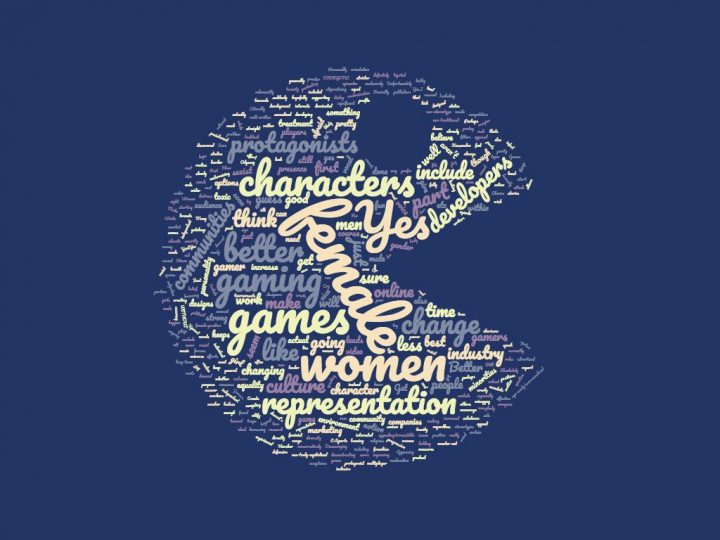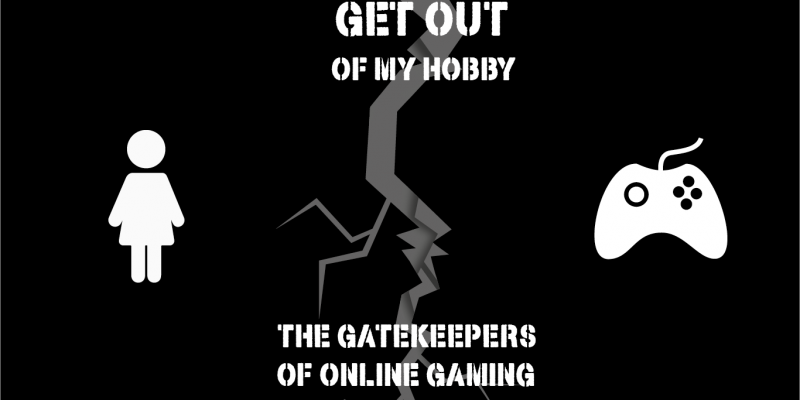The world of video gaming has seen a rapid expansion in the age of the Internet. As more and more diverse people enter the hobby, however, a subset of the audience has started to harass and abuse in an effort to gatekeep their hobby. How should the world of gaming respond?
According to 2017 statistics collected by industry body Newzoo, over 2 billion players enjoy playing and talking about games every single day. The overall industry valued at a staggering $108.9 billion. Over 46% of the UK games audience is female according to the Association for UK Interactive Entertainment (UKIE). The gaming industry has never been healthier.
But the industry was not always like this, and that has caused some problems. Previously, games used to be a niche hobby, marketed towards men and men alone. Portrayals of female characters were often exaggerated and stereotyped, and toy aisles in supermarkets often had video game merchandise exclusively in the ‘Boys’ section.
The industry is still feeling the effects of this, and is still adapting to its global audience.
What the statistics say:
A 2018 report by UK Interactive Entertainment (UKIE), the British video games trade body, backs this up. Though 46% of the video game audience is female, women only make up 19% of the industry.
The CEOs of the 10 most profitable gaming companies are all men.
Games journalism too was not representative in the slightest – a February 2018 study showed that over 75% of articles written that month were by men.
Industries not being representative of their audience is not a unique problem.
But what is unique about video games culture is how tightly policed its cultural spaces are, in a bid to keep people who are not straight white men from discussing games. From forums and discussion boards to Twitter conversations, women and other minorities are often abused and harassed into silence.

Gaming culture hides very real problems under its surface, and the biggest one is about keeping women and other minorities out of the hobby – a culture of abusive gatekeeping.
To find out the extent of these problems, Buzz News conducted a survey of over 60 video game players to see how women are perceived culturally.
Survey results:
One of the questions asked in the survey was what percentage of gamers the respondent thought identified as female. In the US, the biggest gaming market, 45% of the audience identifies as female (according to Statista) and in the UK the figure stands at 46%.
However, the survey results showed the majority of respondents (over 50%) thought the actual percentage lay between 20% and 30%.
Another interesting survey finding was the question of whether respondents termed themselves as ‘gamers’.
The term has often been used by gatekeepers to make people unwelcome in gaming culture, as stated by academic Dr. Emma Vossen. “Developing a sense of belonging in games culture is difficult because of active policing of the symbolic borders of the ‘Gamer’ identity. The title Gamer is used to determine who is and who is not a full participant in games culture and who gets to express their opinion without facing abuse.”
A majority of respondents, 60%, did not call themselves gamers, perhaps for this very reason.
Survey respondents also were overwhelming in their majority when asked if the games industry was oriented towards male players, with over 90% of them saying yes.
When asked why, the majority brought up the lack of representative female protagonists, and how women are generally portrayed badly in the gaming world.
The lack of representation at major companies was also a recurring theme in the survey answers, with female industry professionals very rare.
One of the respondents was very critical of the industry when asked about why they thought the industry was non-representative. “The male-dominated industry makes games that appeal to themselves, and forget about women entirely.”

To see how the industry side of things worked, I then talked to a former games magazine journalist, Makenzie*, who wished to stay anonymous. She spoke at length about the issues that games journalism faces, and especially for a woman in it.
An industry insider’s perspective:
Her experiences were awkward from the start. “I was never discouraged from games by anyone in my real life that I knew, but there was always a sense that the games magazines I read just assumed that their audiences were young and male. Lots of talk about “if your girlfriend lets you play” and that sort of thing. So, there was always that uncomfortable undertone to magazines up until the time I was a teenager, but I do think they’ve improved a lot in recent years.”
“I love games, I grew up with a SNES, my parents got me a PlayStation for my eighth birthday, I always wanted to be part of a creative team somewhere in this industry.
“It’s deeply sad to me that a slight difference in genetics has, while not closed off certain doors to me entirely because there are so many strong amazing people who fight through it, certainly meant that I wouldn’t just be automatically accepted in certain places.”
Makenzie said that she loved her time making magazines, but a lack of communication with other staff was a constant.
“I have always been a no nonsense type, strict on deadlines and strong with constructive criticism, and I was therefore frequently referred to as being a killjoy or a nag. I never saw the men in similar positions talked to like that. ‘Stop nagging me! Just like my wife!’”
“Some of it was meant as a joke, which is fine if you’re comfortable with your co-workers and you’re actually doing well in terms of promotions and such, but it stings when you can’t actually get your manager to sit down with you and discuss your career progression.”
However, she is ultimately more positive about the nature of the industry now.
“The vibe of the games community in general seems to have gone from a widespread mildly sexist undercurrent to a minority of overt sexism, with the majority of games and gamers being more inclusive, more aware of bias, more socially conscious.”
It will take a concerted effort from everyone involved, especially the games industry, to be more inclusive going forward.
You can explore more about gatekeeping in gaming here:
FULL PRINT PIECE
VIDEO
AUDIO
BLOG WITH PRODUCTION UPDATES AND FULL SURVEY RESULTS


 Get Out Of My Hobby (Full Print Piece)
Get Out Of My Hobby (Full Print Piece)